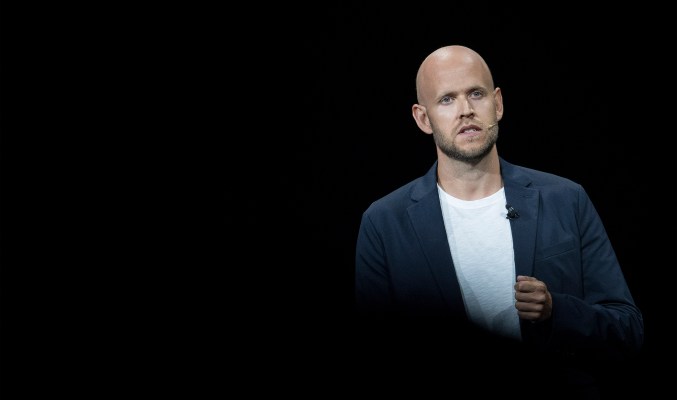Spotify CEO teases potential AI-powered capabilities surrounding personalization, ads

During Spotify’s second-quarter earnings call this morning, CEO Daniel Ek teased a few ways the streaming service could introduce additional AI-powered functionality. Ek touched on how AI could be used to create more personalized experiences, summarize podcasts and generate ads.
Earlier this year, the company launched a DJ feature that delivers a curated selection of music alongside AI-powered spoken commentary about the tracks and artists you like. Ek says consumers can expect to see similar AI-powered features that aim to contextualize and personalize content across the streaming service in the future.
“DJ is a phenomenal product,” Ek said during the call. “It’s probably one of my personal favorites over the last few years that we have developed, and we’ve seen really strong consumer interactions with that. And that just talks about the ability for us to contextualize and personalize all the amazing content that we are have on the Spotify platform. So I think you’re going to see a lot more of that where we can contextualize and personalize content across the entire platform to make it more accessible.”
One of the ways Spotify may use generative AI is by leveraging it to summarize what podcasts are about, as it can be somewhat difficult to get into new podcasts. Ek said doing so could make it easier to merchandise new podcasts for consumers, which would in turn lead to higher engagement and more growth for creators.
Ek says another way AI could be used to make Spotify more efficient is through AI-generated audio ads.
“By using generative AI and our tools here, I think you’re going to be able to see that we can significantly reduce the cost that it takes for advertisers to develop new ad formats,” Ek said. “And that obviously means that you as an advertiser instead of having one ad, you can imagine having thousands and tested across the Spotify networks, things that you could easily do today using text but you haven’t been able to do over video or in audio.”
Ek’s comments come as Spotify is seeking a patent for an AI-powered “text-to-speech synthesis” system. The patent was published on July 20 and filed back in February. The technology can take text and convert it into human-like speech audio that incorporates emotion and intention. The system can create realistic speech that is capable of conveying emotions such as anger, happiness or sadness, along with intentions such as sarcasm. It’s also capable of doing so in a whispering or shouting manner, and in accents.
The patent indicates that Spotify is looking to go beyond its DJ feature, which simply says a few AI-powered sentences between songs. The text-to-speech synthesis system has the potential to be used for things like narrating audiobooks using AI in a way that sounds natural. It’s worth noting that Apple launched AI-powered audio narration for select titles on Apple Books early this year.
The patent filing and Ek’s comments come as Spotify has been investing in AI voice technology. Last year, the streaming service acquired Sonantic, a London-based startup that has built an AI engine to create realistic-sounding human voices from text, for an undisclosed sum. Spotify leveraged the acquisition to power its AI DJ feature.
Spotify’s second-quarter earnings revealed that there are currently 220 million people who pay for a Spotify subscription around the world — that number is up 17% year over year. Overall, Spotify now has 551 million monthly active users. The company reported nearly €3.2 billion ($3.5 billion at today’s exchange rate) in revenue for the most recent quarter. Revenue is up 11% year over year. However, Spotify also reported €247 million ($274 million) in operating loss .
Spotify also announced a price hike for its premium plans yesterday. In the U.S., an individual premium plan will now cost $10.99 per month instead of $9.99. The duo plan will cost $14.99 instead of $12.99 and the family plan will be priced at $16.99 instead of $15.99.


